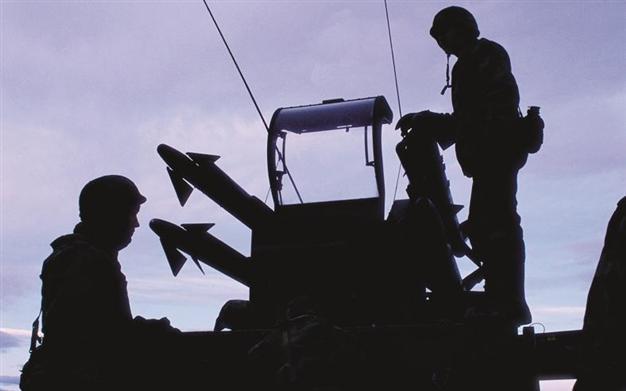Turkey safeguards key sites, feeling threatened in region
Burak Bekdil

Defense officials say Ankara wants to enhance the security of its ‘sensitive sites’ with sophisticated systems to protect them from ‘guided weapon’ attacks.
Increasing instability in its volatile region and prospects of tensions and conflict have urged Ankara to rethink its defense against precision strike attacks from mostly state actors.Security officials said most of Turkey’s “sensitive sites” could no longer be defended without new, sophisticated systems.
“We have too many such sites and practically no defense against precision strikes,” one official said. “We are moving ahead to correct the situation.”
Recently, Turkey’s defense procurement agency, the Undersecretariat for Defense Industries (SSM), invited bids for a contract designed specifically for that purpose: Protection of “sensitive sites.”
A total of 11 Turkish defense electronics companies responded to requests for information: state-controlled Aselsan, Havelsan and Havelsan’s electronic warfare specialist Havelsan Electronik Harp Sistemleri; and privately-owned companies Aydin Yazilim, GATE, Meteksan, Ortadogu Savunma, SELEX and Yaltes.
SSM said the program involved sophisticated protection against “guided weapons.”
Officials say “sensitive sites” may include present and future bridges on the Bosphorus, selected military and air bases and command centers, and future nuclear energy plants and some dams.
“This is not an anti-terror program. Here the defined threat is sophisticated missile technology, which can only come from hostile states,” one official explained.
He said the planned protection system would be similar to naval protection systems. It would consist of sophisticated sensors, missile detection systems, jamming and deception systems and air defense guns.
SSM officials say the program may cost the government a few hundred million dollars, depending on the number of sites to be protected.
“The idea originated when the state pipeline company felt that its own security services may fail in the event of a concerted or sophisticated attack on any Turkish pipeline. We think this task requires the services of a professional company or companies for an integrated system,” one procurement official said.
Botaş, the state pipeline company, runs pipelines that are thousands of kilometers long and currently operates its own security system for protection.
The procurement official said the proposed system would feature cameras, drones, a command and control center and a rapid reaction force. “Depending on the features that will be chosen, this program may cost up to a few hundred million dollars,” he said.
Tender for pipelines
Last month, SSM also opened a bidding process to procure integrated security systems for all oil and natural gas pipelines in the country.
The planned security systems will be for all existing pipelines, others that will be built, and management facilities and units on these pipelines, according to the SSM’s response to the request for information.
The integrated security systems will protect pipeline facilities from threats like sabotage and theft, the document also states.
SSM has begun to respond to bidders as of yesterday, and the contenders will be asked to make bids no later than Oct. 15.
The program intends to provide protection for existing and future pipelines especially in Turkey’s southeast. The project comes at a time when oil revenues are a lifeline for the Kurdish Regional Government (KRG) in northern Iraq, whose peshmerga forces are being supported by U.S. air strikes in their battle against the radical Sunni militants of the Islamic State in Iraq and the Levant (ISIL).
A pipeline, which first began operating at the start of this year, allows the semi-autonomous Kurdish enclave to independently pump and export oil, carrying northern Iraqi Taq Taq crude to Turkey’s Mediterranean export outlet of Ceyhan.
The KRG began independently exporting its crude via Ceyhan in May, a move that has infuriated Baghdad, which claims the sole authority to manage Iraqi oil.
Baghdad has tried to block KRG’s oil sales and prevented some cargoes from discharging through legal action, but the Kurdish enclave has managed to keep loading cargoes from Ceyhan.
So far, 7.8 million barrels of Kurdish oil have flowed through the independent pipeline, of which 6.5 million have been loaded onto tankers for export.
But Turkey also hopes it will be destined to evolve into a more robust economic and political power with gas from the Caspian Sea set to move from the Southern Caucasus to Europe through Turkish territory.
















